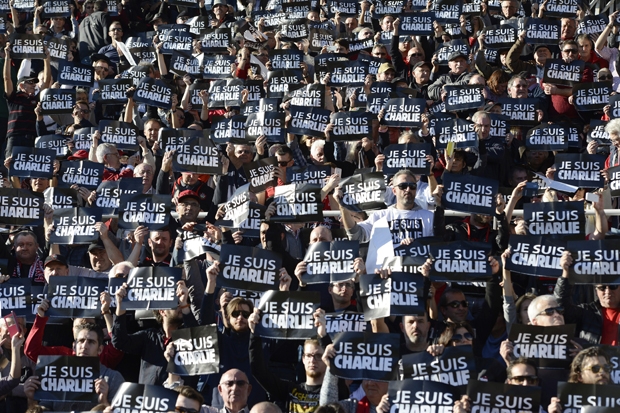The great conundrum of French history is the French Revolution, or rather, the sequence of revolutions, coups and insurrections during which the nation was repeatedly destroyed and recreated. How is it that a heap of cobblestones, furniture and overturned vehicles — handcarts in 1848, 2CVs in 1968 — erected at particular points on the Left Bank of Paris can bring down a régime whose domain extends from the North Sea to the Mediterranean? As Baudelaire observed when Napoleon’s nephew conducted a coup d’état in 1851 and installed himself as supreme leader, it seemed that ‘absolutely anybody, simply by seizing control of the telegraph and the national printing works, can govern a great nation’.
In Les Misérables, Victor Hugo was thinking of this discrepancy between the mass of political power and the lever of popular unrest when he described a barricade in the 1832 insurrection as ‘at once Mount Sinai and a pile of rubbish’. Some greater narrative seemed to preside over the chaos, a tale of freedom wrested from a tyrant by dint of pure Enlightenment reason, momentarily abetted by frenzied bloodletting. This ‘narrative’, which the nation still recounts to itself like a favourite bedtime story, demands that large parts of its history be dismissed as aberrations and sections of its population as enemies of the fatherland.
As Jonathan Fenby shows in his engagingly diplomatic history of modern France, this narrative at least makes it possible to walk a steady path through the gunsmoke, the tear gas, the barricades and the decapitated bodies. The book is primarily a reminder of the chief political events of modern French history. As such, it is inevitably concentrated in Paris. In 1832,
with its 800,000 inhabitants, Paris contained less than one thirtieth of France’s population, but it was the fulcrum of events that determined the fate of national regimes, its newspapers shaping opinion.
Fenby’s guiding argument, however, is applicable to the nation as a whole. France, says Fenby, has never ‘fully digested’ its ‘revolutionary and republican legacy’, because ‘it has never wanted to shed its other, more conservative character’. Torn between radical fervour and fear of change, ‘the French have become prisoners of the heritage of their past’. With only ten pages on the Revolution, there is not much food here for analysis, but Fenby does provide plenty of concrete examples of the unresolved conflict: the bitter intransigence of the Dreyfus Affair, the enthusiastic cooperation of the Vichy régime with Nazi Germany, the brutal treatment of Algerians and the callous abandonment of the white colonists. Since the fall of the Bastille, every national debate has been tinged with extremism. The Enlightenment project, it seemed, required an enemy. The ‘furrows’ of the fatherland, says the ‘Marseillaise’, must be ‘fed and watered with impure blood’.
The key figure in Fenby’s account is General de Gaulle, who tried to ‘transcend the cleavages born of 1789’ by becoming an incarnation of ‘une certaine idée de la France’ (a typical cumulonimbus of a phrase in which everyone could see whatever they liked). Faced with the chaos of events, de Gaulle adopted what is still widely seen in France as the only reasonable philosophical stance of the enlightened citizen: total cynicism. After de Gaulle, the nation’s leaders looked increasingly like chancers, crooks, philanderers and windbags. Fenby uses his long experience as a foreign correspondent to paint a picture of dodgy politicians presiding over the decline of a once-proud nation in which there are now more psychiatrists than priests, where 43 per cent of the population claims to know nothing about wine, 80 per cent of croissants are made in factories, and most snails and frogs’ legs are imported.
Fenby detects a ‘rare moment’ of national unity in the demonstrations following the attack on the offices of Charlie Hebdo in January. He also discreetly shows this to be another episode in the saga of violent factionalism. Marine Le Pen, leader of the National Front, for which 25 per cent of the population voted in March, was barred from participating in the Paris demonstration. Many French Muslims were appalled, not just by the savagery of the attack, but also by public support for deliberate, unremitting insults to the Prophet. Charlie Hebdo itself was perceived to be a guardian of principles that were defended in May ’68 by students whom others see as spoilt bourgeois anarchists armed with homemade tear gas and improvised napalm.
The overarching narrative which Fenby takes as his theme has never produced a simple story. In the wake of the Charlie Hebdo massacre, French Jews pointed to the disparity between the official response and muted reactions to earlier terrorist murders of Jews in Paris. In February, hundreds of Jewish graves in eastern France were desecrated. The perpetrators were not jihadists but neo-Nazis, which gave President Hollande’s plea for national solidarity an unintentionally sardonic, historical resonance: ‘Without the Jews of France, France would not be France.’






Comments